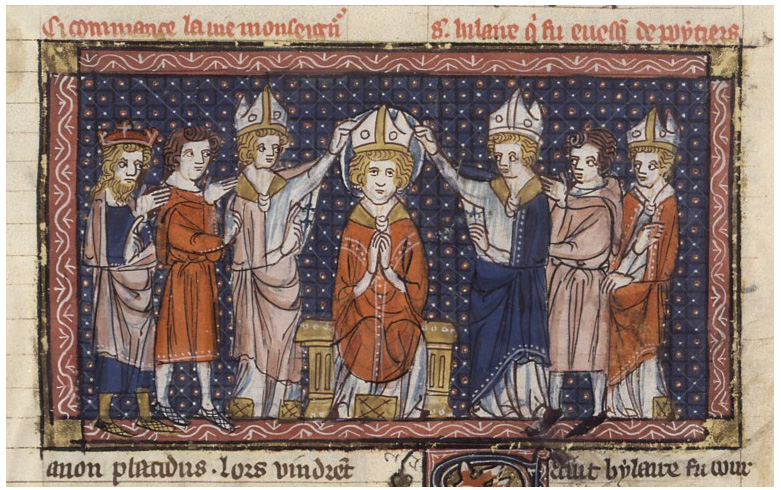Liturgical traditions commemorate Saint Hilary of Poitiers today. Hilary’s struggle against the Arian heresy during the fourth century AD serves as an example to modern Christians resisting the spread of materialistic humanism.
Raised in a pagan household in France, Hilary carefully studied philosophy, including the tenants of Christianity. This study led him to salvation in 345 AD. Less than 10 years later, he became bishop of Poitiers.
“Like many other early Church Fathers, he [Saint Hilary] came to accept the truth of the Bible by recognizing its compatibility with philosophy and the sciences,” the Catholic News Agency (CNA) reported.
Arianism was spreading like wildfire in the fourth century. This heresy denied Christ’s deity and the existence of the trinity by extension. Adherents said Jesus was created by the Father, rather than His eternally begotten Son. So popular was this heresy, even contemporary Roman Emperor Constantius II believed it and persecuted orthodox Christians.
Grounded in scripture from conversion, Hilary maintained his firm understanding of biblical truth. Constantius II opposed Hilary and banished him for his orthodox beliefs. But instead of folding under this pressure, Hilary doubled down. He wrote his seminal treatise On the Trinity while in exile.
“This work by Hilary was the best defense of the divinity of Christ against the Arians,” Calvin College’s Christian Classics Ethereal Library (CCEL) said. “With his On the Trinity and other writings, especially his work On the Synods, Hilary did much to bring unity between the followers of Athanasius and other anti-Arians.”
During his exile, Hilary travelled as far away as Constantinople to lead local bishops back to orthodoxy, according to CNA. He continued traveling widely, even after his exile, to spread sound biblical teaching.
How does this apply to Christians today? Because Arianism is alive and well.
Modern “materialistic, humanistic philosophy” relegates Christ to a harmless human status like Arianism once did, Fr. Dwight Longenecker wrote for the National Catholic Register in September.
“Clearly, Jesus Christ as the Divine Son of God and the co-eternal second person of the Holy Trinity doesn’t really fit” into this modern form of Arianism, Longenecker noted. “Instead Jesus is a good teacher, a wise rabbi, a beautiful example, a martyr for a noble cause.”
Like Hilary, contemporary Christians must maintain that Jesus was fully God, eternally begotten of the Father. Only then can He claim moral authority over our lives and save us from our sins.
Modeling our tactics after Hilary will also aid our cause. He relied both on intellectual rigor and personal persuasion to spread right thinking about Christ. Winsome proclamation of orthodox gospel truth, both in the public square and to those around us, remains our most effective option today.
Arianism once threated to overtake Western Christianity. Heresy in the guise of materialistic humanism poses no less a danger today. It falls to orthodox Christians to rise up in opposition. May we too faithfully withstand persecution for the sake of preserving the truth like Saint Hilary.





Comment by Cathy on February 26, 2019 at 2:48 pm
thanks – I though Constantine banished Hilary but it is Constantius II emperor of Rome